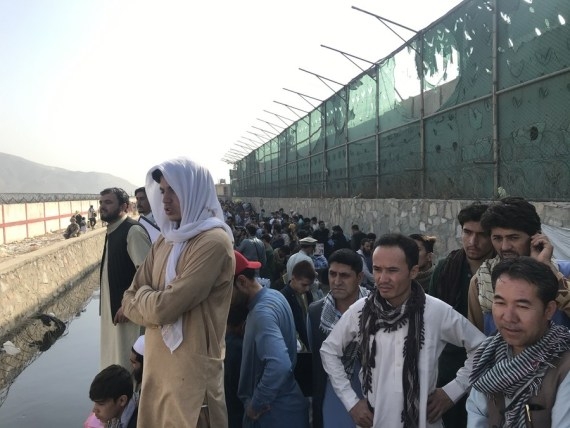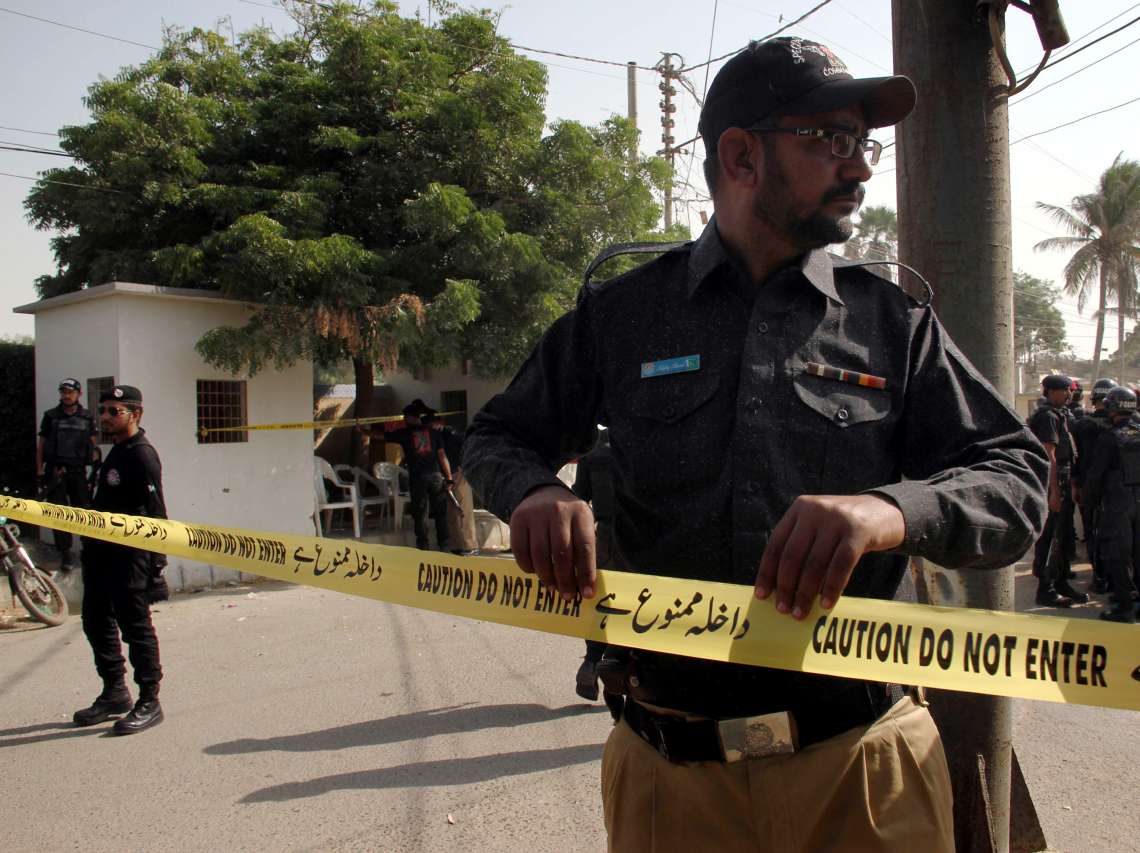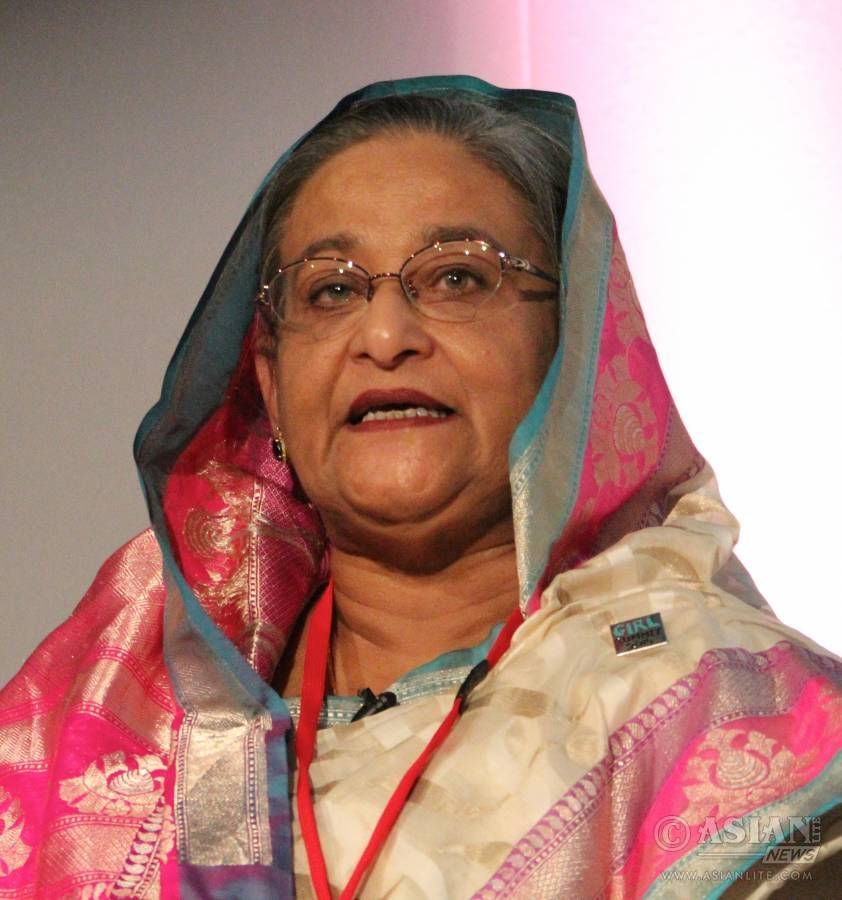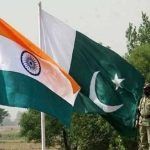Keamari camp, set up to accommodate Afghan families, houses hundreds of families who await being registered and transported to the Pak-Afghan Torkham border and deported to Afghanistan….reports Asian Lite News
Afghan families at the Keamari camp, in Pakistan’s economic hub and port city of Karachi, on Saturday said that the Pakistani authorities are deporting the low-income Afghans, while turning a blind eye against the wealthy Afghans.
“We and our relatives are poor people, and rely on daily wages to feed our children. The authorities caught them working near Sohrab Goth, and at the time, they did not even have money for food. The police avoid arresting wealthy or business-owning Afghans and instead detain poor individuals just to fulfil their deportation quotas,” said Abdul Rehman and his relative Muhammad Khan of the Keamari camp.
Keamari camp, set up to accommodate Afghan families, houses hundreds of families who await being registered and transported to the Pak-Afghan Torkham border and deported to Afghanistan.
Many families at the Keamari camp complain about the discrimination being practised by the authorities against low-income daily Afghan workers.
Data of detained Afghan nationals also revealed that over 95 per cent Afghans detained by the police in Karachi are labourers, who work at the vegetable market.
Human rights activist Moniza Kakar said that the Pakistan government’s official directive only applies to the forced repatriation of Afghans holding the Afghan Citizen Card (ACC).
“However, in Karachi, Afghans possessing other valid documents are also being detained and forcibly deported to Afghanistan. The majority of these people are poor,” he said.
Muhammad Tahir, an Afghan national who runs a hotel in Sohar Goth area of Karachi, said that even though he hailed from a village in Afghanistan’s Kunduz province, he was only five years old when his father fled Afghanistan and came to a refugee camp in Pakistan.
“I have six children, three sons and three daughters, all of whom were born, raised and married off in Karachi. Like my children, most Afghan children living in Karachi were born here and have never even been to Afghanistan. How could they be forced to live in a country that they have never even seen?” said Muhammad Tahir.
He added that many Afghan Pashtuns living in Karachi have married their children into local Pashtun families, making it impossible for them to simply leave their spouses and families behind and return to Afghanistan.
Pakistan has started a nationwide deportation campaign against illegal Afghan nationals and holders of Afghan Citizen Card (ACC) after the deadline for voluntary repatriation ended on March 31.













